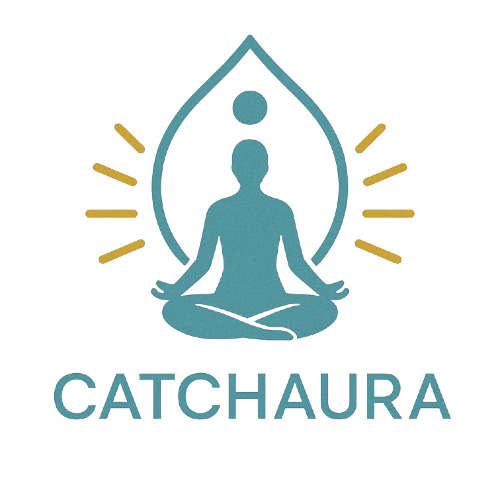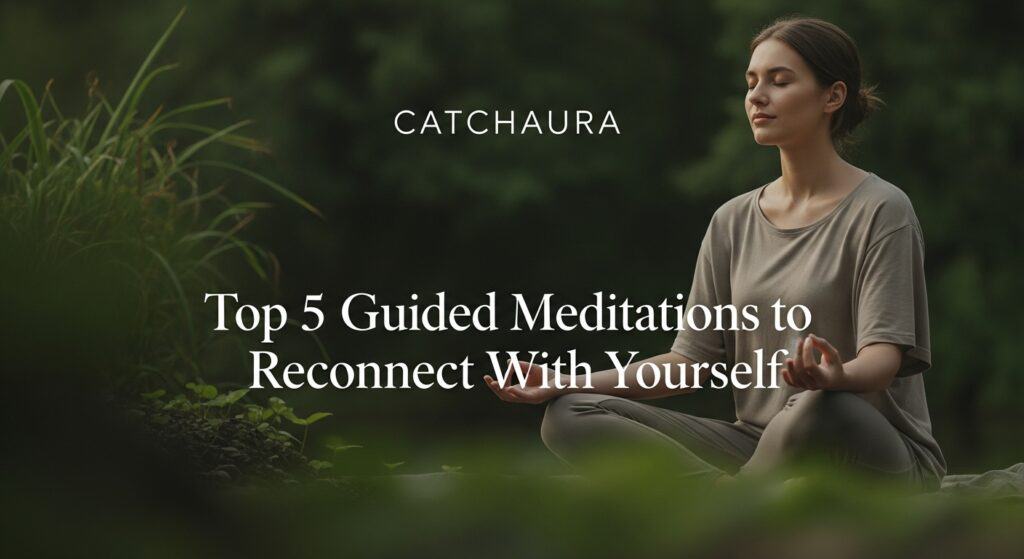Top 5 Guided Meditations to Reconnect With Yourself
Estimated reading time: 8 minutes
Key Takeaways
- Guided meditation helps reduce stress, anxiety, and improves emotional well-being.
- Mindfulness-Based Stress Reduction (MBSR) is scientifically backed for stress relief.
- Loving-Kindness Meditation fosters self-love and emotional healing.
- Body Scan Meditation promotes deep relaxation and better sleep.
- Chakra Balancing Meditation enhances spiritual and energetic alignment.
Table of Contents
- Why Guided Meditation? The Science Behind Reconnecting With Yourself
- 1. Mindfulness-Based Stress Reduction (MBSR) Meditation
- 2. Loving-Kindness Meditation (Metta)
- 3. Body Scan Meditation for Deep Relaxation
- 4. Chakra Balancing Meditation
- 5. Breathwork Meditation for Anxiety Relief
- Final Thoughts: Making Meditation a Daily Habit
- FAQ
Why Guided Meditation? The Science Behind Reconnecting With Yourself
Guided meditation is an excellent way for beginners and experienced practitioners alike to cultivate mindfulness. According to the National Center for Complementary and Integrative Health, meditation can improve emotional well-being, reduce symptoms of anxiety, and even enhance sleep quality.
Similarly, Mindful.org highlights how simple mindfulness techniques can be seamlessly integrated into daily routines, making meditation more accessible.
If you’re struggling with stress, meditation for stress and anxiety can be transformative. The Mayo Clinic emphasizes that mindfulness exercises can help regulate emotions and improve mental clarity.
1. Mindfulness-Based Stress Reduction (MBSR) Meditation
Best for: Stress relief, grounding, emotional balance
MBSR is a structured program that blends mindfulness with guided meditation to help manage stress. Research from NIH News in Health shows that mindfulness can lower cortisol levels, improving both mental and physical health.
How to practice:
- Find a quiet space.
- Follow a guided MBSR audio (many free options are available online).
- Focus on breath awareness and body scanning.
Pros:
- Scientifically backed for stress reduction
- Improves emotional regulation
Cons:
- Requires consistent practice for best results
Tip: Pair this with aura-cleansing techniques to enhance energetic alignment.
2. Loving-Kindness Meditation (Metta)
Best for: Self-love, emotional healing, compassion
Loving-kindness meditation focuses on cultivating unconditional love—for yourself and others. If you struggle with self-criticism, this practice can be profoundly healing.
How to practice:
- Sit comfortably and repeat affirmations like, “May I be happy. May I be at peace.”
- Gradually extend these wishes to others.
Pros:
- Strengthens empathy and self-acceptance
- Reduces negative self-talk
Cons:
- Can feel challenging if you have deep-seated emotional blocks
Tip: Boost your practice with free self-love affirmations PDF to reinforce positive thinking.
3. Body Scan Meditation for Deep Relaxation
Best for: Sleep meditation, physical tension release
If you carry stress in your body, a body scan meditation can help release stored tension. This is especially helpful for those with insomnia or chronic pain.
How to practice:
- Lie down and mentally scan each body part.
- Release tension with each exhale.
Pros:
- Promotes deep relaxation
- Enhances body awareness
Cons:
- May trigger discomfort if you’re not used to stillness
Tip: Combine with biohacking sleep science hacks for optimal rest.
4. Chakra Balancing Meditation
Best for: Energetic alignment, spiritual connection
Chakras are energy centers that influence emotional and physical well-being. A blocked throat chakra, for example, can stifle self-expression.
How to practice:
- Visualize each chakra glowing with its corresponding color.
- Use affirmations to clear blockages.
Pros:
- Enhances spiritual awareness
- Restores energetic flow
Cons:
- Requires some knowledge of chakra systems
Tip: Beginners can start with this chakra healing guide.
5. Breathwork Meditation for Anxiety Relief
Best for: Meditation for anxiety, quick stress relief
Controlled breathing techniques can instantly calm the nervous system. The 5-second breathing energy hack is a great complement to this practice.
How to practice:
- Inhale for 4 seconds, hold for 4, exhale for 6.
- Repeat for 5-10 minutes.
Pros:
- Fast-acting anxiety relief
- Can be done anywhere
Cons:
- May feel lightheaded if overdone
Tip: Pair with energy-cleansing techniques for a full reset.
Final Thoughts: Making Meditation a Daily Habit
Reconnecting with yourself doesn’t have to be complicated. Whether you choose MBSR for stress, loving-kindness for self-love, or chakra meditation for spiritual growth, the key is consistency.
For deeper exploration:
- Try AI-guided meditation for personalized sessions.
- Use nootropics for focus if mental clarity is a challenge.
Remember, the journey inward is the most rewarding one. Which meditation will you try first?
FAQ
What is the best meditation for beginners?
Mindfulness-Based Stress Reduction (MBSR) is highly recommended for beginners due to its structured approach and scientific backing.
How long should I meditate daily?
Start with 5-10 minutes and gradually increase to 20-30 minutes for deeper benefits.
Can meditation help with sleep?
Yes, practices like body scan meditation are particularly effective for improving sleep quality.
Is guided meditation better than silent meditation?
Guided meditation is often easier for beginners, while silent meditation allows for deeper introspection as you advance.
How do I know if my chakras are blocked?
Signs include emotional imbalances or physical discomfort. A chakra healing guide can help identify blockages.


Pingback: 🌟 Spiritual Depression: 7-Step Method 99% Don’t ...
Pingback: 👨👩👧👦 Nature Parenting Method Guide f...